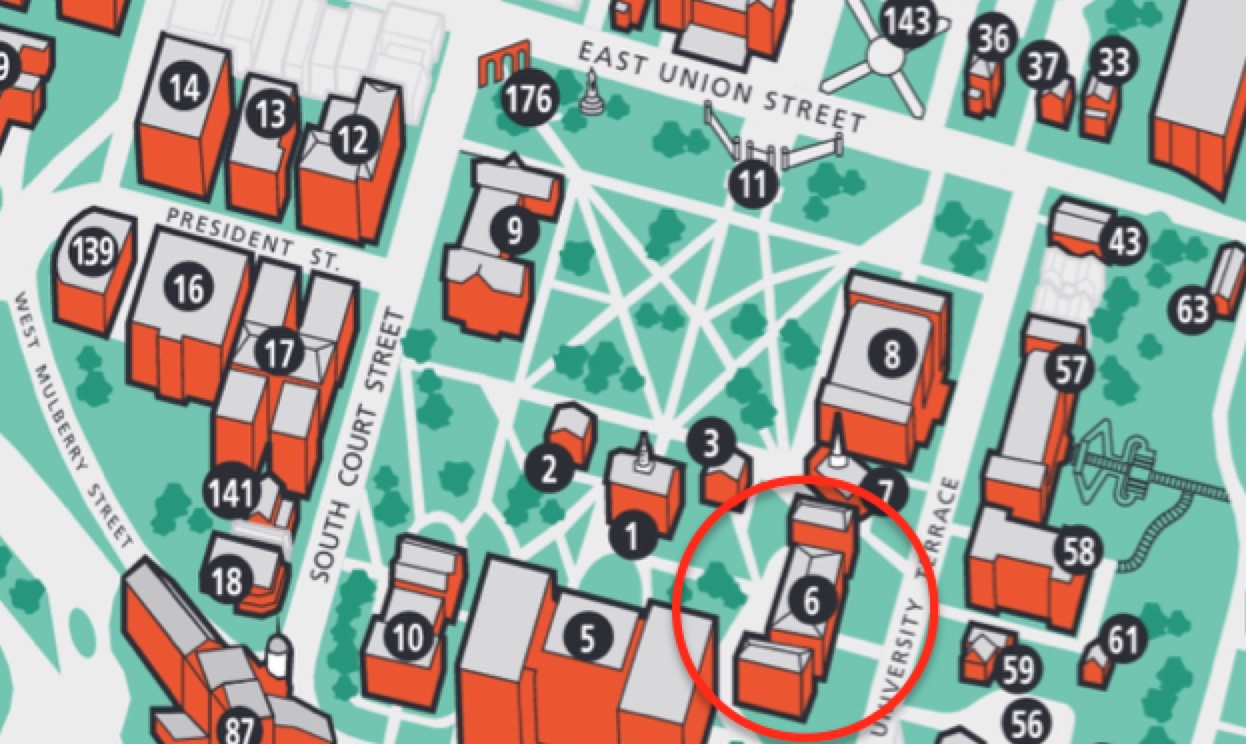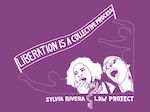|
ENG 3260
Dr. Edmond Y. Chang Download the course policies and syllabus (PDF).
"Do work that matters. Vale la pena."
"You think your pain and your heartbreak are unprecedented in the history of the world, but then you
read. It was books that taught me that the things that tormented me most were the very things that
connected me with all the people who were alive, or who had ever been alive."
|
WHAT DOES IT MEAN to "queer" the American Dream? Who is included and more importantly excluded from the American Dream? How might we critique these inclusions and exclusions through "queering" literature, media, and culture? Eve Kosofsky Sedgwick defines "queer" as "the open mesh of possibilities, gaps, overlaps, dissonances and resonances, lapses and excesses of meaning" in bodies, identities, genders, sexualities, and particularly in the ways we define, think about, talk about, represent, and value these things. This class will engage close readings and analyses of gender, sexuality, race, class, nation, and other intersectionalities in literature and other narrative texts. We will address the representation and politics of different identities, embodiments, and desires, particularly to critique and challenge hetero-normativity and other forms of oppression. To that end, we will look at a range of American literature that may or may not be overtly about queerness or by queer writers or artists including Charlotte Perkins Gilman, Nella Larsen, F. Scott Fitzgerald, J. D. Salinger, Tennessee Williams, Allen Ginsberg, James Baldwin, Toni Morrison, Jessica Hagedorn, Qui Nguyen, and Alison Bechdel. A REQUIREMENT for this class is a well-developed curiosity about the world, about the culture we live in, and about the cultural productions we imagine, produce, and consume. In other words, this class is about reading, critiquing, and analyzing our culture through different literatures and texts. We will engage different practices enjoying and analyzing literature and other media, as well as develop literary, feminist, and queer strategies, habits, and perspectives of reading, thinking, and writing. Foremost, we will read and research with pleasure and for pleasure. We will also close read for analysis. And lastly, we will read and deploy literature as theory, as dramatizing the concerns, wonders, struggles, and politics of lived life and experience. SPECIFICALLY, our course goals include (the formal ENG 3260 outcomes are in bold):
• You will develop a critical and theoretical vocabulary for interpreting LGBTQ texts.
We will develop and demonstrate a familiarity with a range of texts, terms, and theories,
engaging with 20/21C American literature, geographical areas, genres, and literary traditions.
We will foreground texts by LGBTQ writers and writers of color.
WE WILL spend the quarter asking and addressing difficult,
challenging, and sometimes discomforting ideas, questions, and topics, focusing on different
identities, bodies, histories, desires, experiences, and even struggles and violences. Whether
on the page, screen, on campus, or in the community, we will explore and engage multiple perspectives,
levels of familiarity with the material, and heady and heartfelt responses. In other words, our
class will be a safe, respectful, but not necessarily comfortable space. While pushing boundaries
and comfort zones are essential to critical thinking, making connections, and intellectual and
personal freedom, see me with concerns and queries, for reasonable accommodations, and for further
resources on campus.
|
"You have some queer friends, Dorothy...The queerness doesn't matter, so long as they're friends."
Required Course Texts & Materials
• Fitzgerald, The Great Gatsby.
|
|
Course Requirements
Presentation & Roundtable (20%) Download the course policies and syllabus (PDF).
|
Requirements & GradingYour grade should not be the sole exigence or motivation for this class. It is the hope of the course that you walk away from our class with something more. Find some pleasure and some edification and some knowledge from this class (or any class really) and success is usually not far behind. With that in mind, your grade will be a reflection of engagement, effort, close reading, critical thinking, writing, and participation. Critical Essay & Questions Presentation and Roundtable (20%) You will be a required to sign up in small groups for an oral presentation and roundtable during the course of the semester. For your presentation, you will read the literary text assigned for a particular week, summarize and articulate two or three main points from the week’s scholarly or critical text (as assigned), generate a critical question connecting the theory to the literature, and contribute to in-class and online discussion for the week. Curations should have a group presentation plan, a substantive framing post, may include media, and each group member must contribute to the discussion and post. Annotated Works Cited (10%) You will develop and maintain an annotated bibliography of all of the main scholarly and secondary sources read for class. These sources tie directly into the preparation for and development of your Critical Reflections. Critical Reflections (20%) Over the course of the semester, you will have approximately five opportunities to complete short, analytical reflections that ask you to respond to the literature, the theoretical texts, and to assess your own work and performance in class. These reflections will be due (tentatively) at the end of Week 3, 6, 9, 12, and Week 15. You must complete two of the five opportunities, one of which must be in the first half of the term and one in the second half. Critical reflections will be cumulative and based on the class readings, literature, other media, and in-class and Blackboard discussions. through careful revision. Creative Response (10%) Not only will you be reading science fiction and speculative literature, you will generate a creative response to demonstrate the ideas, goals, and critiques of the literatures of the course. You will create your own SF as a short-short story, narrative poem, or drawing. The creative response will be evaluated on completion and your thoughtful engagement with the prompt. Critical Review (10%) At the end of the term, you will write a short, 500 word, single-spaced critical review of a text not covered by the course that you believe fits the critical, theoretical, and intellectual stakes of this class. You will locate a text, close read the text, and generate an academic critique and assessment of the text’s value for study. In other words, what text might you include in a class like ours? You must have your text approved by the instructor. The critical review will be turned in and published on the course blog. Participation and Preparedness (30%) Preparedness and participation forms a large component of your final grade. It is essential that you prepare for class, attend class, and participate. Missing class or participation may seriously compromise your ability to do well in this class. Moreover, negative participation will hurt your participation grade. Participation is determined by 1) your respectful presence in class and interactions with me and others, 2) your willingness to discuss, comment, and ask questions, 3) your preparation for class, which includes having the required materials and doing all of the assigned reading or work for class, 4) your engagement and collaboration in group work, presentations, office hours, and course events, and 5) your care and use of the class Blackboard or "Bb"—bookmark the address, check regularly, comment as required, and think of the blog as an extension of class: https://blackboard.ohio.edu/webapps/blackboard/execute/courseMain?course_id=_578597_1 |
"You must write, and read, as if your life depended on it."
"Authors do not supply imaginations, they expect their readers to have their own, and to use it."
"An idea that is not dangerous is unworthy of being called an idea at all."
|
|
|
AttendanceAttendance is required. If you are absent, you miss the explanation of an assignment, the discussion of a reading, the chance to participate, and overall, the class as a community of learning. Also, you are expected to be in class on time. In the first minutes of class I may make important announcements, establish the agenda for the day, begin immediately with an important lesson, or field questions. If you come in after we start class, even by only a few minutes, you are late and will be mark as such. Chronic or conspicuous attendance problems will negatively affect your overall participation grade for the class.
Moreover, absences for more than 14 class sessions (50% of class time or more) will result
in a failing grade regardless of reason. All absences are your responsibility. If you
know you are going to miss class, please let me know (via email) as soon as possible and
make any necessary arrangements. When you do miss class, always find another student to
get class notes or see me during office hours in order to make up missed work in a timely
manner. You are always responsible for all material covered during your absence.
|
|
|
MLA Paper Formatting 1) 1" margins top, bottom, left, and right on each page. 2) Single-spaced block header on the first page only with your name, date, course, my name:
Student Name 3) Short, appropriate title. 4) Print single-sided. Papers are double-spaced with paper page numbers in the upper right hand corner; no extra space between paragraphs. 5) Standard Times Roman Font, 12 point only. 6) Correct MLA citation and bibliographic format. A paper turned in without a bibliography automatically fails and will be returned with no comments.
|
Assignment FormatAll papers must be typed or produced on a word processor. All documents should be saved in Microsoft Word format (or if necessary Rich Text Format). All papers must follow the manuscript format outlined by the assignment. Unless instructed otherwise, all papers must use MLA citation and documentation conventions. All papers must be neatly printed (in black), single-sided, stapled in the top, left-hand corner if necessary, and not be three-hole punched. Papers that do not follow these format guidelines will not be accepted. They will be returned unread to you. Papers will be regarded as late until they are resubmitted in the proper format. Always make a backup copy of every paper you turn in, lest you be one of the unhappy people whose paper is eaten by the computer. You may even want to take the precaution of e-mailing your paper to yourself as an attachment during the drafting process and certainly before you exit the document and leave the computer. Or you may want to invest in cloud-based file storage like OneDrive (which all OU students have already have access) or DropBox.
Evaluation RubricOver the course of the semester, your assignments will receive feedback and comments that will identify what you are doing well and what still needs improvement. Your grades assess your fulfillment of the assignment, the quality of work, detail, analysis, and argumentation, overall effort, and finally, style, polish, and risk taking. Consider the following evaluation rubric as signposts or a kind of legend to your progress and evaluation:
• Outstanding (A/A+): Offers a very highly proficient, even memorable demonstration
of the trait(s) associated with the course or assignment goal(s), including some
appropriate risk-taking and/or creativity. |
Late Assignments All assignments must be done completely and turned in on time. Late assignments will be penalized a letter grade for every day that they are late. So, if your essay is late by one day and you received a B- for your work, then your final grade would be a C-. Moreover, I will not comment on late work. However, you still need to complete late work or you will receive a zero. If you miss the due date of a paper, you must notify me and make arrangements to get the paper to me as soon as possible. Unless previously arranged, I DO NOT accept assignments via email. Remember that a paper has not been officially handed in until it is in my hands. Never turning anything in late is always the best policy. |
|
Contact Dr. Chang
Office: Download the course policies and syllabus.
|
Finding HelpMy office and office hours are listed in the left sidebar. I am available during that time and by appointment to help you. I encourage you to come see me early in the quarter even if it is just to talk about the class, about the assignments, or about school in general. I may ask you to meet with me when I think a conference would be useful. My office is located on the third floor of Ellis Hall (east of Alden Library), Room 331.

Email is the best way to contact me. I will do my best to answer your emails and Bb posts, usually within twenty-four hours. If there is an emergency and you need to reach me, please contact the main English office in 201 Ellis Hall. Furthermore, when time permits, I will supplement my office hours with virtual hours via Google Talk (nickname: EDagogy); if I am logged in, during reasonable hours, you are more than welcome to discuss the class or ask questions. Please, when you initiate an IM conversation, please say hello and identify yourself to me; also, be patient because my responses may not be immediate. You can find additional writing and academic help at the Student Writing Center (SWC) on campus, a good resource for this class and other classes. The SWC is located in the Academic Advancement Center (AAC) on the second floor of Alden Library and offers a variety of services including help with reading, papers, brainstorming ideas, and research. See https://www.ohio.edu/uc/aac/swc.cfm to make an appointment and for more information.
Further resources, both on- and off-campus can be found on the Links page of the course website:
http://www.edmondchang.com/courses/3260/links.html.
|
|
|
|
AccommodationsAny student who feels they may need an accommodation based on the impact of a disability should see me or contact me in the first week of class to discuss their specific needs and provide written documentation from Student Accessibility Services. If you are not yet registered as a student with a disability, please contact Student Accessibility Services at 740-593-2620 or visit the SAS office in 348 Baker University Center. The SAS website is: https://www.ohio.edu/uc/sas/index.cfm.
COVID-19All students are required to abide by the university’s pandemic strategies and protocols, which are updated and outlined: https://www.ohio.edu/coronavirus. Please follow all guidelines and recommendations regarding masking, social distancing, testing and symptom reporting, and vaccination. If you have physical or mental health concerns, changes in employment, housing, or responsibilities, or face other challenges, insecurities, or problems, please seek out Ohio’s health services: https://www.ohio.edu/wellness/student-resources, counseling center: https://www.ohio.edu/student-affairs/counseling, or see me for further help, resources, or accommodations.
Academic DishonestyAll students are required to uphold the highest academic standards. Plagiarism, or academic dishonesty, is presenting someone else's ideas or writing as your own. In your writing for this class, you are encouraged to refer to other people's thoughts and writing--as long as you cite them. Many students do not have a clear understanding of what constitutes plagiarism, so feel free to ask questions at any time. For our class, plagiarism includes:
• a student failing to cite sources of ideas If you have any doubt about how to cite or acknowledge another's writing, please talk to me. Any plagiarism or academic dishonesty will result in failure of an assignment or of this course. It is always better to be safe than sorry. Please review the Ohio University's Academic Misconduct page at https://www.ohio.edu/communitystandards/academic/students.cfm
Harassment, Discrimination, and Sexual Misconduct
Ohio University and this course are committed to a safe, supportive, and inclusive learning environment.
Title IX makes clear that violence and harassment based on sex and gender is a Civil Rights offense
subject to the same kinds of accountability and support applied to offenses against other protected
categories such as race, national origin, and so on. As your instructor, I am a mandatory reporter
and am required by law to share with the University any information regarding sexual misconduct or
information about a crime that may have occurred on campus. For more information about policies
and resources or confidential reporting options, see the Office of University Equity and Civil
Rights Compliance:
https://www.ohio.edu/equity-civil-rights/
or the Division of Student Affairs
page on Student Conduct & Community Standards:
https://www.ohio.edu/communitystandards/process/sexualassault.cfm.
|
"When I read great literature, great drama, speeches, or sermons, I feel that the human mind has not achieved
anything greater than the ability to share feelings and thoughts through language."
"My imagination makes me human and makes me a fool; it gives me all the world and exiles me from it."
"If one is lucky, a solitary fantasy can totally transform one million realities."
|
|
|
© 2021 Edmond Chang. All original material. All rights reserved. Contact the webmaster of this site. These pages are best viewed with Mozilla Firefox or Google Chrome. Open your browser to the largest viewable area. These pages are hosted by ED(MOND)CHANG(ED)AGOGY, the academic, professional, and creative website of Edmond Y. Chang. |
|


















